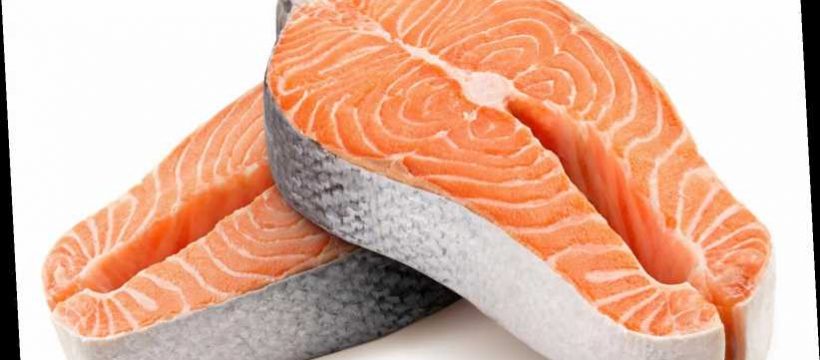
Part of eating healthy is ensuring that you get most (if not all) of the vitamins and minerals you need from your diet. If you eat fish, you’re probably already getting additional nutrients that are separate from the other foods you’re consuming. But what happens to your body when you stop eating fish? The answer might surprise you.
First off, eating fish (particularly fatty fish like salmon, sardines, tuna, mackerel, and trout) is fairly good for you (via Healthline). It’s jam-packed with vitamins like vitamin D, which is a nutrient that might not be in your everyday diet. Plus, fatty fish has omega-3 fatty acids that help your brain and body function better.
So what happens to your body when you stop eating fish? Well, you could increase your risk for heart-related episodes, like heart attacks and strokes (via Mayo Clinic). Eating fish at least twice a week can help boost heart health by lowering blood pressure, reducing the potential of blood clots and irregular heartbeats, and even decrease triglycerides. And while all of that is important, what eating fish can really do is reduce the risk of heart disease — like sudden cardiac death.
Here are two additional ways that eating fish can improve your health

If you find yourself being more forgetful than usual, well, you may want to serve yourself some salmon. A study reported by The Atlantic found that people who ate fish had bigger brains — literally. Not only were their brains larger, but they were able to decrease the chances of having cognitive deficiencies and dementia. So if you’re looking to boost your brainpower, you should make sure to include fish on your weekly menu.
Feeling blue lately? Chalk it up to a lack of fish in your diet, Time reported. In fact, a study published in the Journal of Epidemiology & Community Health found that eating fish decreased depression by a whopping 17% over those who didn’t eat it. While the study didn’t exactly state how fish affected mood, it’s believed that the omega-3 fatty acids in fish might somehow affect dopamine and serotonin, two extremely important neurotransmitters that help with regulating mood (via Very Well Mind).
The next time you’re contemplating what to have for dinner, figure out a way to add more fish to your meal. It can make your heart and your head happy and much, much healthier.
Source: Read Full Article
